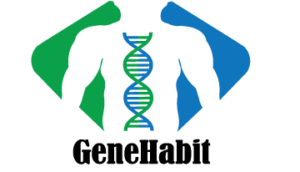Genetic Changes Impact Vitamin & Mineral Metabolization
Genetics plays a major role in how a person absorbs vitamins and minerals. Several classes of genes are responsible for the absorption of micronutrients that is required for a number of activities like skin and hair health. The HFE gene is a key marker for iron absorption. Iron deficiency is caused by a genetic variation in the HFE gene. A recent study conducted on the European and Asian populations found that people with a negative variant of the gene had hair loss issues, whereas people with the normal version of the gene had no hair loss issues.
Another study was done on US and UK Caucasians to find out how variation in the genes affects their absorption of vitamins. The BCMO1 gene is important in determining the absorption of vitamins A and C. Genetic variation in the BCMO1 gene is the cause of its deficiency. Individuals with negative versions of this gene had telogen-like symptoms, whereas, individuals with normal gene markers had normal hair growth cycles.
Hair Loss & Nutritional Deficiencies: Both Interconnects
Hair loss is one of the most frustrating experiences one can have. It not only hampers your looks but also your confidence. Numerous factors can influence hair loss, such as genes (family history), medical conditions like hormonal imbalance and immune disorders, emotional trauma, and more. However, what most people do not realize is that hair loss is related to their diet. For healthy hair growth, nutrients, vitamins, and minerals are essential. If your body is not getting any of these through your diet, you are likely to experience hair loss.
Let’s have a look at the nutritional requirements of hair and how genetic changes could influence its absorption.
Essential Vitamins For Your Hair
Vitamin A
The body needs vitamin A for growth, but it also helps keep hair healthy by making an oily substance called sebum. Sebum moisturizes the scalp and protects against hair breakage; without enough of this natural oil, an individual’s hair could become dry as a powder or even brittle.
Sources- Good sources include cheese, eggs, oily fish, fortified low-fat spreads, milk, and yogurt.
Vitamin B
One of the best-known vitamins for hair growth is a B vitamin called biotin. Studies link it to increased follicle health and regeneration, which can lead to more healthy-looking hair.
Sources- One can get B vitamins from Whole grains, Almonds, Meat, Fish, Seafood, and Dark leafy greens.
Vitamin D
Vitamin D is a powerful nutrient for healthy hair. Vitamin D has been shown to play an important role in stimulating new hair growth. When there isn’t enough vitamin D, the body’s ability to create follicles can be stunted, which could lead an individual to have slow-growing or thinner hairs that would eventually cause alopecia (bald patches). Studies have found that Vitamin D deficiencies are associated with alopecia.
Sources- Fatty fish, Cod liver oil, Mushrooms, and fortified foods.
Vitamin E
Vitamin E is essential for maintaining a healthy hairline and quick hair growth. It helps prevent damage that can occur when the body processes chemical stressors such as pollution, UV rays from windowpanes in cars or outside during summertime, etc. It also protects cells through its antioxidant properties, which may reduce free radicals produced by these factors, making it easier on the individual body.
Sources- Sunflower seeds, almonds, spinach, and avocados are all good sources of vitamin E.
Vitamin C
Vitamin C is a nutrient that helps grow and strengthen hair. It has been proven to be one of the most effective nutrients for growing healthy hair as it helps in collagen synthesis- a protein that promotes skin and hair growth. Vitamin C deficiency can result in dryness and breakage, while too much of it leads to soft bristles or even baldness.
Sources- Good sources include peppers, lime, kiwi, avocado, and strawberries.
Minerals
Minerals are an important part of normal hair follicle development and immune cell function. There is a risk factor associated with the development of alopecia due to the deficiency of minerals.
The major minerals required for hair are as follows:
Iron
When one doesn’t consume enough iron, the body can’t produce hemoglobin in the blood. Hemoglobin carries oxygen for the growth and repair of cells in the individual body that stimulate hair growth. Iron deficiency is a major cause of hair loss, especially in women.
Sources- Foods high in iron include clams, oysters, eggs, red meat, spinach, and lentils.
Zinc
Zinc plays a major role in hair tissue growth and repair. It also helps keep the oil glands around the follicles moisturized and working properly. Hair loss is a common symptom of zinc deficiency. Recent studies showed that resolving zinc deficiency with supplementation reduces deficiency-related hair loss in individuals suffering from alopecia conditions.
Sources- Many ready-to-eat breakfast bowls of cereal are fortified with zinc. Oysters, red meat, and poultry are excellent sources of zinc. Baked beans, chickpeas, and nuts (such as cashews and almonds) also contain zinc.
Omega-3 Fatty Acid
Omega-3 fatty acid provide essential proteins and nutrients to hair follicles and skin that prevent hair follicle inflammation — a factor that directly contributes to alopecia conditions. Omega-3 also promotes circulation in the scalp, that may trigger hair growth
Sources- Fatty fish such as salmon, mackerel, and tuna are excellent sources of omega-3 fatty acids. Nuts like almonds and Walnuts are also rich in omega-3 fatty acids.
Selenium
Selenium is an antioxidant that helps regenerate other antioxidants in your body, like vitamin C. This promotes the growth of healthy hair and hair regrowth. It kills harmful free radicals in your body, which are harmful to your hair.
Sources- Seafood, organ meats, and Brazil nuts are the foods highest in selenium.
HairLife: Your Guide To Hair Nutritional Requirements
With the HairLife hair DNA test, you can determine your genetic hair loss risk particularly if you have a family history of baldness. In addition, this test also identifies if you have gene variations that are associated with a particular nutrient deficiency. With this information, you can customize your diet plan and get personalized hair supplement recommendations to reverse androgenic alopecia.
Visit the HairLIFE page if you want to read more about different hair loss conditions in males and females and how our test can help you achieve long-term healthy hair.


